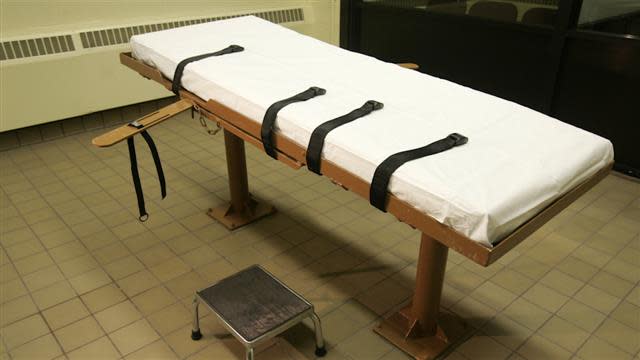Court: Ohio can again try to execute man after failed attempt

CLEVELAND, March 16 (Reuters) - The Ohio Supreme Court ruled on Wednesday that the state could again try to execute convicted killer Romell Broom after failing to do so seven years ago.
In a 4-3 ruling written by Justice Judith Lanzinger, the court said the state would not violate the U.S. Constitution's ban on cruel and unusual punishment or double jeopardy by executing Broom, a Cleveland man sentenced to death for murdering 14-year-old Tryna Middleton in 1984.
SEE ALSO: Woman claims salon visit gave her a stroke
If Broom is put to death, he would be the first person on which a second execution has been attempted in the United States since the U.S. Supreme Court reinstated capital punishment in 1976, according to the Death Penalty Information Center.
RELATED GALLERY: Notable death penalty executions and people on death row
Ohio's execution of Broom in 2009 was called off after two hours when officials failed 18 times to attach intravenous needles to administer the chemicals used in the process.
Broom's lawyers appealed, saying a second attempt violated the 8th Amendment's cruel and unusual punishment statute and the 5th Amendment's right against double jeopardy.
%shareLinks-quote="There is no question that lethal drugs did not enter Broom's body. The execution attempt was halted after preparations to establish a viable IV line were unsuccessful." type="quote" author="Justice Judith Lanzinger" authordesc="" isquoteoftheday="false"%
In April 2011, a Cuyahoga County court found that repeated needle sticks were "unpleasant" but not in violation of Broom's constitutional rights. Broom then appealed to the Ohio Supreme Court.
Lanzinger agreed with the lower court. "There is no question that lethal drugs did not enter Broom's body," she wrote. "The execution attempt was halted after preparations to establish a viable IV line were unsuccessful."
In a dissenting opinion, Justice Judith L. French asked: "If the state cannot explain why the Broom execution went wrong, then the state cannot guarantee that the outcome would be different the next time."
Ohio in 2015 delayed all scheduled executions until 2017 due to the difficulty obtaining the drugs necessary to carry out lethal injections. One of 31 U.S. states with the death penalty, it has not executed an inmate since January 2014 and had planned 11 executions in 2016.
Ohio has put 53 inmates to death since 1999, when it carried out its first execution since 1976. There are 139 inmates on the state's death row, according to prison officials. (Reporting by Kim Palmer, Editing by Ben Klayman, G Crosse and Lisa Von Ahn)
